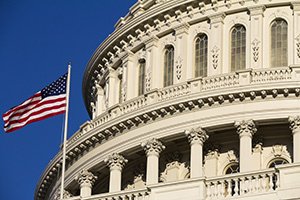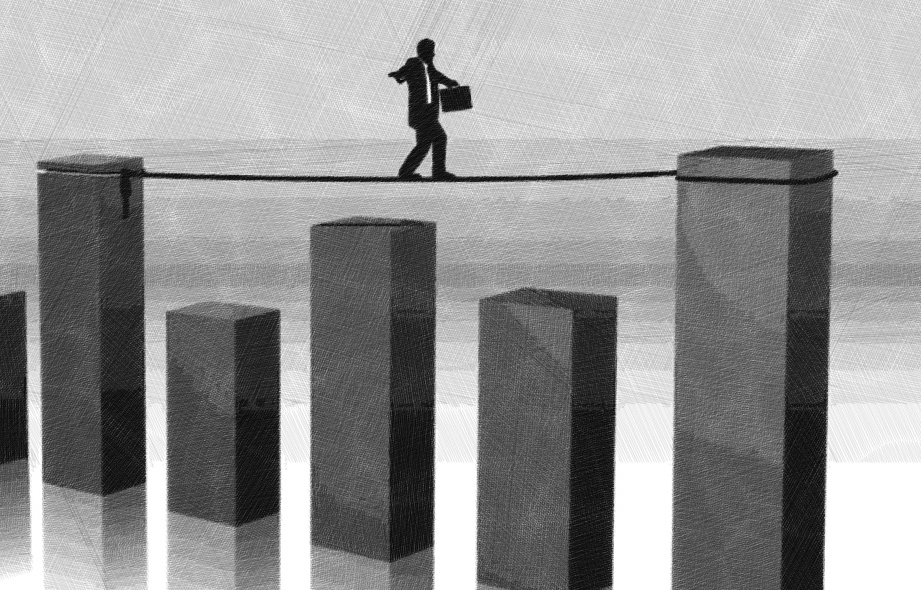by Brad McMillan, CIO, Commonwealth Financial Network
Yesterday, I wrote that the markets were likely to continue to trend upward, on the idea that the U.S. tariffs were not really going to happen. But then the news that Gary Cohn had resigned as head of the National Economic Council was announced—and this has changed that perception entirely.
It is not so much the resignation, but the role that Cohn has played in the administration. He was seen as the voice of economic stability and a spokesperson for financial markets. His resignation leaves the president with a set of economic advisors largely seen as outside of the mainstream, or at least perceived as less aligned with Wall Street interests. At a minimum, this introduces more uncertainty into economic policy and raises the chance of policy actions such as tariffs.
How will the markets react?
Markets will likely react negatively to the increased uncertainty. They are also likely to take this as a signal that tariffs are indeed coming—quite possibly on more than just steel and aluminum. This could hurt business and investor confidence, which are two of the pillars holding up the markets. Indeed, markets around the world are down as of this morning, and futures for U.S. markets are down as well.
This is not the end of the world. As before, much depends on what is actually announced versus the initial statement, and even more on any additional next steps. Markets are likely to take a step back, as they did with the initial announcement, and wait to see what happens. That is likely to be a bigger step, however, than we saw the other day because the chances of disruptive policy action are now going to be perceived as higher.
Here’s the real risk
The real problem is that from an economic and market standpoint, the news is about as good as it can get. Plus, events like this start to erode the confidence that things will continue to get better. One of the major supports of the economy and markets has been just that—confidence. With business confidence at 13-year highs and consumer confidence at an 18-year high, there is more room to go down than up. We don’t need that. Other positive trends that may be peaking include low inflation, low interest rates, strong job growth, and the list goes on.
All of this is a normal part of the cycle. But change usually happens over time, so markets have a chance to adjust. This is a major reason why the Fed moves as gradually as it does. By contrast, the sudden announcement of tariffs—coupled with the resignation of a senior official—is a shock. By making sudden changes in the status quo, markets could be forced to adjust quickly, which tends to be much sharper.
This is the real risk here: sudden changes can cause, well, sudden changes. We just saw one of these, when the market dropped 10 percent, and every change raises the odds of a recurrence.
More sudden changes could be damaging
The fundamentals remain sound, of course, which should cushion any damage. But even here, the effects of the tariffs and other policy changes will certainly show up, albeit with a lag. In the face of other fading tailwinds and rising headwinds, the economy and markets really don’t need more sudden changes that could very well be damaging. But it looks as though that is exactly what they are likely to get.
*****
Brad McMillan is the chief investment officer at Commonwealth Financial Network, the nation's largest privately held independent broker/dealer-RIA. He is the primary spokesperson for Commonwealth's investment divisions. This post originally appeared on The Independent Market Observer, a daily blog authored by Brad McMillan.
Forward-looking statements are based on our reasonable expectations and are not guaranteed. Diversification does not assure a profit or protect against loss in declining markets. There is no guarantee that any objective or goal will be achieved. All indices are unmanaged and investors cannot actually invest directly into an index. Unlike investments, indices do not incur management fees, charges, or expenses. Past performance is not indicative of future results.
Commonwealth Financial Network is the nation's largest privately held independent broker/dealer-RIA. This post originally appeared on Commonwealth Independent Advisor, the firm's corporate blog.
Copyright © Commonwealth Financial Network













